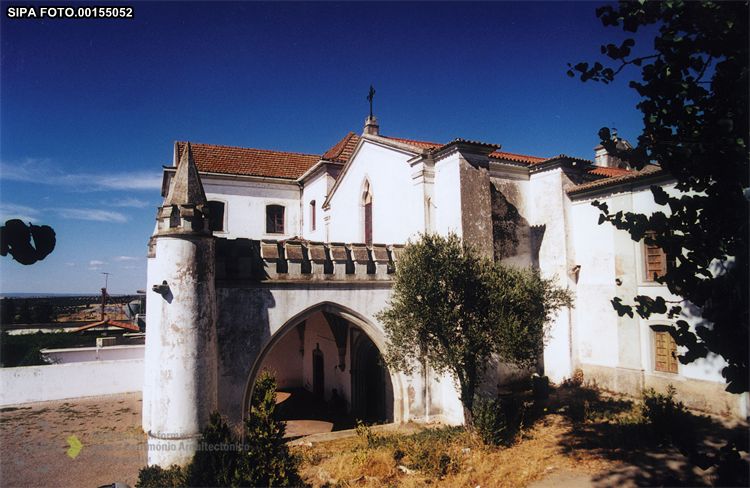 Serpa hosts, on 3 March (21:30 pm, at the Musibéria – International Center for Music and Dance of the Iberian World), the world premiere of “Ten Popular Hungarian Songs”, by Fernando Lopes-Graça, in another concert of the Festival Terras sem Sombra .
Serpa hosts, on 3 March (21:30 pm, at the Musibéria – International Center for Music and Dance of the Iberian World), the world premiere of “Ten Popular Hungarian Songs”, by Fernando Lopes-Graça, in another concert of the Festival Terras sem Sombra .
“64 years after it was composed, this remarkable cycle remained on paper”, stresses the organization. The concert, a tribute from the Alentejo festival to the great composer, “reveals his unpublished pieces, of an emotional beauty, and, alongside them, the lively songs of the Magyar popular tradition which the master was inspired by”.
For this “wide-reaching project”, Terras sem Sombra puts Portuguese and Hungarian artists side by side: the soprano Cátia Moreso and the traditional singers and dancers Hanga Kacksó and Áron Vára, accompanied by Nuno Vieira de Almeida – a great connoisseur of the work by Lopes-Graça, with whom he was a friend – on the piano, and by Béla Szerényi, on the accordion, on the flute and on the “tárogató”.
The event, organized in partnership with the Municipality of Serpa, has the collaboration of Academia Liszt.
In Baixo Alentejo, there will also be an authority on European popular music, Professor Pál Richter, professor at the Liszt Academy and director of the Institute of Musicology of the Hungarian Academy of Sciences, the most distinguished scientific institution in this country.

Remembering Lopes-Graça, a landmark of Portuguese music with international projection
«The fate of Fernando Lopes-Graça in national territory seems ironic: a man of the left, respected or hated for his political convictions, almost never for the work left behind as a composer», stresses Nuno Vieira de Almeida.
And he adds: «few people really know his music, which is not always easy, but it is infinitely varied and interesting».
Despite having lived in difficult circumstances, due to political persecution, Lopes-Graça left a production, perhaps better known outside our borders, which places him among the most important composers of his time. In particular, he created many original works on texts by great poets – Régio, Sophia, Camões, Pessoa, Botto, among others –, along with a real search for popular music.
His interest in tradition was not limited, however, to Portugal; a genius curiosity led him to harmonize traditional French, English, Czech, Russian, Greek, American, etc. songs.
This immense knowledge of multiple languages gave rise to real wonders of imagination and inventiveness, which began in 1948 with “Six Vieilles Chansons Françaises” and continued until 1969 with “Cantos Sefardins”.
Unfortunately, most of these works remain unpublished, having never been performed in concert or recorded. This is the case of the "Ten Hungarian Popular Songs", from 1954.
Therefore, stresses the organization, «his presentation at this festival, in an absolute debut, is therefore of great artistic importance. The themes dealt with alternate between humor, sarcasm or nostalgia and Lopes-Graça developed them with remarkable expressiveness. An approach to the beautiful original songs, as they were sung in rural Hungary in the XNUMXth and XNUMXth centuries, makes the concert unique».

Heritage and biodiversity in Serpa: from late Gothic art to ancient olive trees
The Festival Terras sem Sombra is an open door to what is most interesting in the Alentejo, in cultural and environmental terms.
Loyal to the planned course, he dedicates the afternoon of next Saturday to a national monument that is very little known, despite its historical and artistic importance: the convent of saint anthony, whose origin is linked to one of the oldest miracles of São Francisco in Portugal.
Founded by Infante D. Fernando, Duke of Beja, and finished by his son, D. Manuel I, it is one of Serpa's well-kept treasures.
The visit to this national monument begins at 15 pm and is guided by historians António Martins Quaresma and José António Falcão and by architect Maria Manuel Oliveira.
Sunday, March 4th, from 10:00 am, it is dedicated to the centuries-old olive trees of Monte da Zanga. Today, the old olive groves are disappearing, replaced by new plantations whose impact does not go unnoticed.
On that farm on the outskirts of Serpa, however, there are trees that are over 1000 years old, a true repository of biodiversity.
This olive grove, the target of meticulous care, produces traditional olive varieties from which oils with flavors from other times are extracted. An alternative to the massification of agro-industry that is very important to consider. The activity is supervised by the agronomist José Pedro Fernandes de Oliveira.


















Comments